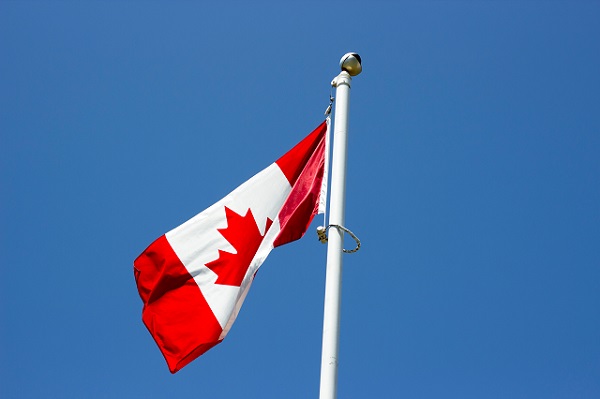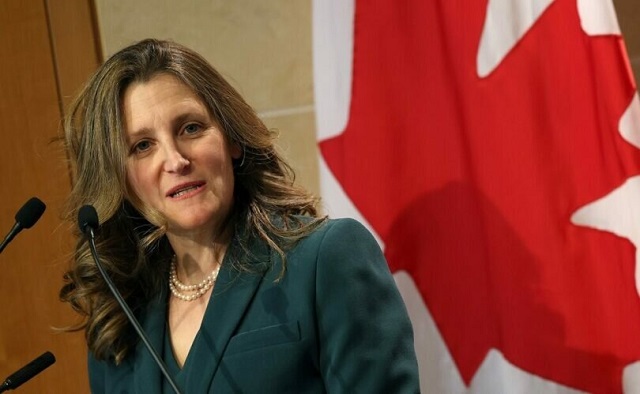espionage
Government-shackled interference inquiry unlikely to get answers
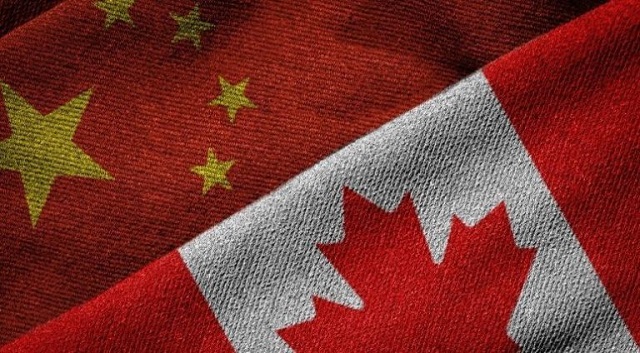
From the MacDonald Laurier Institute
By Ryan Alford
” the commission will receive a large portion of its testimony in secret with no cross-examination by the parties. Additionally, the government will have the last word not merely on what information is provided to the inquiry, but on what the commission can publish — even in its final report “
The foreign interference inquiry into the 2019 and 2021 elections (also known as the “Hogue commission,” named for Commissioner Marie-Josée Hogue) is holding preliminary hearings this week. Those with experience with public inquiries in general, and with the Rouleau commission into the emergency powers declaration of 2022 in particular, can see it will be a failure.
When it comes to public inquiries, the government makes the rules, and when it says, “Heads I win, tails you lose,” the only winning move is not to play. Those rules, written by the cabinet in the form of a public inquiry commission’s mandate and terms of reference, allow the government to reveal and restrict information about its own failures as it sees fit.
The most important feature of the Hogue commission’s mandate is the restriction on the information provided to the inquiry: the terms of reference state plainly that if the government didn’t provide a confidential cabinet document to Special Rapporteur David Johnston back in 2023 when he was tasked with looking into election interference without the authority of a public inquiry, the commissioner won’t see it, either.
The details that made it into Johnston’s final report were far more tame than what the Canadian Security Intelligence Service (CSIS) allegedly told former Conservative leader Erin O’Toole when he led the party. O’Toole told Parliament that CSIS informed him that he had been targeted in an ongoing campaign of misinformation coordinated by the Chinese Communist Party (CCP). When asked, Johnston said that was news to him. (Subsequently, NDP MP Jenny Kwan added that CSIS had told her she was an “evergreen” target of Beijing.)
When Johnston was confronted about the discrepancies, he merely noted that the information CSIS revealed had not been made available to him at the time, and he had “reported on what was made available to us … the amount of information available was an ocean and we saw a very large lake.” (Unfortunately, Johnston could not see any issue with the political equivalent of investigating the causes of the sinking of the Titanic when directed to do so at Lac Tremblant).
Johnston concluded, based on the information provided to him by the government, that he could not attribute the misinformation spread during the 2021 election to state actors. Information coming from many unofficial sources — and via leaks — makes this untenable. Evidence also shows that Chinese Canadians in Richmond, B.C. were bombarded with slander targeting local Conservative MP Kenny Chiu on the WeChat social media platform.
The Hogue commission should add to its focus the activities of Senator Yuen Pau Woo — and the government’s knowledge of these activities. However, once again, the commission’s ability to investigate hinges entirely on the government’s willingness to hand over sensitive and potentially incriminating documents, and for those targeted by misinformation to speak freely knowing that information will be available immediately to those they named as their persecutors.
Until 2022, Woo served as the facilitator (i.e., caucus leader) of the Liberal-aligned Independent Senators Group. In a decision made on Dec. 4, Commissioner Hogue granted Woo the right to participate in the foreign interference inquiry as an intervenor, as “he will contribute the perspective of a political figure working to address issues of foreign interference while advocating for a community that risks being stigmatized or negatively impacted by counter-interference measures, whether proposed or put in place.”
Woo has been accused of adopting the CCP’s rhetoric but has denied working for China. Groups targeted by CCP intelligence operations in Canada (including Uyghurs and Hong Kongers) opposed Woo’s participation in the interference inquiry (along with that of politicians Han Dong and Michael Chan) on the ground that he would be allowed “access to sensitive information shared by witnesses or victims (and) will deter witnesses from speaking freely.”
Their concerns were aired around the same time as a report emerged alleging Woo had pledged to support the United Front, which is an arm of the CCP. In December, investigative journalist Sam Cooper reported that a recording existed of Woo briefing the Canada Committee 100 Society — a Chinese cultural organization with ties to the United Front according to declassified American intelligence — in May of 2020. In that recording, Woo advised members that groups officially listed by the CCP as United Front Work Department (UFWD) organizations cannot (and presumably, will not) be considered agents of the Chinese state.
However, a Privy Council Office report from 2020 shows that the government knew the CCP’s UFWD had allegedly coordinated electoral interference through community groups. The report specified that the UFWD had facilitated electoral interference in 2019, noting that “the UFWD’s extensive network of quasi-official and local community and interest groups allow it to obfuscate communication and the flow of funds between Canadian targets and Chinese officials.” Despite all this, Woo had reassured the Canada Committee 100 Society that they could continue their activities.
It is already a given that the commission will receive a large portion of its testimony in secret with no cross-examination by the parties. Additionally, the government will have the last word not merely on what information is provided to the inquiry, but on what the commission can publish — even in its final report, as the commission’s terms of reference refer to disclosure procedures that clearly implicate the attorney general’s power to withhold information for the purpose of national security.
This is why the first two days of the inquiry were devoted to managing expectations about how the public’s right to know would need to be “balanced” against national security confidentiality and all the other reasons the government will invoke to justify withholding and censoring information.
It is ironic that at an inquiry made possible by whistleblowers within CSIS, those at the commission will be classed “persons personally bound to secrecy” by an order-in-council issued in tandem with the mandate of the Hogue commission. Most won’t mind; the Hogue commission hired a number of personnel who did yeoman service at the Rouleau commission, including its lead counsel and research council chair.
This time around, there have been no grand public assurances that the government is committed to providing unprecedented access to information. Rather, we’ve been put on notice that obfuscation and dithering over confidentiality will be used to beat us down.
Some parties, like the Uyghur Rights Advocacy Project, have already indicated they have had enough of the charade. Others, including those like members of Parliament Michael Chong and Jenny Kwan, who were the victims of shocking hostility and ineptitude from the CCP and the government, will likely persist, although it is already clear that they deserve much more information, and much better treatment from the Hogue commission.
As for myself, I can only say, “Fool me once, shame on you. Fool me twice, shame on me.”
Ryan Alford is a professor in the Bora Laskin Faculty of Law at Lakehead University and a senior fellow at the Macdonald-Laurier Institute.
espionage
Canada’s intelligence chief says he personally warned Trudeau about China’s election meddling
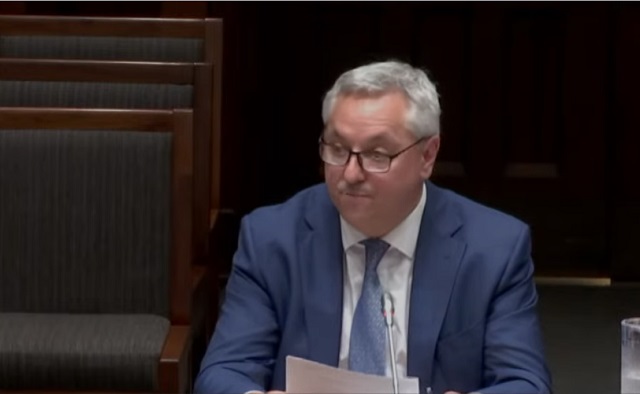
David Vigneault
From LifeSiteNews
Canadian Security Intelligence Service director David Vigneault authenticated memos used during private meetings with the prime minister as well as his staff concerning Chinese Communist deception.
The head of Canada’s intelligence agency testified under oath that he gave Justin Trudeau multiple warnings that agents of the Communist Chinese Party (CCP) were going after Conservative MPs yet the prime minister has denied he ever got these warnings.
In what appears to be a contradiction of Trudeau’s claim that he was not briefed directly about CCP meddling in Canada’s electoral process, Canadian Security Intelligence Service (CSIS) director David Vigneault said late last week at the Foreign Interference Commission that he indeed had “communicated” the issues.
He then authenticated memos used during private meetings with Trudeau as well as his staff concerning CCP deception, which was also noted in a “top secret” memo titled Briefing to the Prime Minister’s Office on Foreign Interference Threats to Canada’s Democratic Institutions, dated February 21, 2023.
The six-page memo went into full detail as to the extent of CCP subterfuge that targeted Canada’s Conservative Party in the 2019 and 2021 federal elections.
The memo read that CCP agents “were almost certainly motivated by a perception the Conservative Party of Canada was promoting a platform that was perceived to be anti-China,” also stating that 2021 election anomalies were “aimed at discouraging Canadians, particularly of Chinese heritage, from supporting the Conservative Party, leader Erin O’Toole and particularly Steveston-Richmond East candidate Kenny Chiu.”
“We know the People’s Republic of China clandestinely and deceptively interfered in both the 2019 and 2021 general elections,” the memo reads.
Vigneault confirmed he used similar language when speaking with Trudeau and political aides.
At the Commission inquiry, Gib van Ert, counsel for Conservative MP Michael Chong, asked Vigneault if “this knowledge something you or the Canadian Security Intelligence Service as a body communicated to the Prime Minister?”
“It is indeed something I communicated,” Vigneault replied.
Thomas Jarmyn, counsel for Erin O’Toole, then asked if “Those words were chosen with intention?”
“Yes, these words are carefully selected,” Vigneault replied.
Earlier this week, LifeSiteNews reported that details from the “top secret” memo have shown that Trudeau’s office was giving explicit warnings by Canadian intelligence that agents of the CCP were an “existential threat to Canadian democracy.”
The Foreign Interference Commission was convened to “examine and assess the interference by China, Russia, and other foreign states or non-state actors, including any potential impacts, to confirm the integrity of, and any impacts on, the 43rd and 44th general elections (2019 and 2021 elections) at the national and electoral district levels.”
The Commission is being headed by Justice Marie-Josée Hogue, who had earlier said that she and her lawyers will remain “impartial” and will not be influenced by politics and began January 29.
In January, Hogue said that she would “uncover the truth whatever it may be.”
Spy head: Trudeau was ‘briefed’
Last week, the commission learned about another “secret” memo from October 26, 2022, about “clandestinely supported candidates” states that “People’s Republic of China officials could be emboldened in their electoral interference efforts by the 2021 defeat of former Richmond MP Kenny Chiu.”
During testimony at the commission, Vigneault confirmed that he mentioned the matter with Trudeau, saying, “This is one of the cases I briefed the Prime Minister on that day.”
Shantona Chaudhury, counsel for the commission, asked him if he was able to recall “whether that is something you conveyed to the Prime Minister?”
“I don’t remember if I used these exact words but talking about that specific case, I put that case in context in relation to other People’s Republic of China activities,” Vigneault replied.
Nando de Luca, counsel for the Conservative Party, then asked Vigneault if the information was specifically communicated to Trudeau.
“I can tell you some of that information was absolutely used to brief on a very specific topic,” Vigneault replied.
Vigneault then noted that all the top-secret memos, which were composed for his meetings with Trudeau’s office, contained many facts as well as similar language he had spoken of many times.
“I have verbalized some of these issues in the past,” Vigneault told the commission.
Despite the warnings given to Trudeau’s office, not once were opposition MPs warned that they were a target of CCP agents.
In May 2023, Trudeau said to reporters that he did not know anything about CCP agents targeting conservative MPs.
“The Canadian Security Intelligence Service knew about certain things but didn’t feel it reached a threshold that required them to pass it up out of CSIS,” he said.
“Was it briefed up out of the Canadian Security Intelligence Service? It was not,” he added, saying that “CSIS made the determination it wasn’t something that needed to be raised to a higher level because it wasn’t a significant enough concern.”
espionage
Trudeau’s office was warned that Chinese agents posed ‘existential threat’ to Canada: secret memo
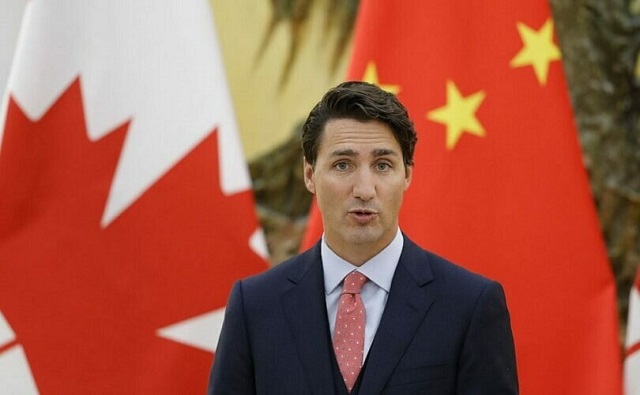
From LifeSiteNews
‘Until foreign interference is viewed as an existential threat to Canadian democracy and governments forcefully and actively respond, these threats will persist,’ reads the 2023 memo given to Prime Minister Justin Trudeau’s office.
Details from a “top secret” memo have shown that Prime Minister Justin Trudeau’s office was given explicit warnings by Canadian intelligence that agents of the Communist Chinese Party (CCP) meddling in the nation’s elections posed an “existential threat to Canadian democracy.”
The disclosure that Trudeau’s office was warned of CCP meddling in Canada’s elections process came during testimony last week at the Foreign Interference Commission.
Counsel for Conservative Party of Canada (CPC) MP Michael Chong observed that a “top secret” memo titled, Briefing To The Prime Minister’s Office On Foreign Interference Threats To Canada’s Democratic Institutions, dated February 21, 2023, was “truly” a “remarkable document” in what it revealed.
The six-page memo went into full detail as to the extent of CCP subterfuge which targeted Canada’s Conservative Party in both the 2019 and 2021 federal elections.
“State actors are able to conduct foreign interference successfully in Canada because there are few legal or political consequences,” reads the memo.
“Until foreign interference is viewed as an existential threat to Canadian democracy and governments forcefully and actively respond, these threats will persist.”
Trudeau has been coy and has never explicitly stated whether he was ever told by members of Canada’s intelligence agency, the Canadian Security Intelligence Service (CSIS), that the CCP agents’ actions were in breach of the nation’s Elections Act.
The Foreign Interference Commission was convened to “examine and assess the interference by China, Russia, and other foreign states or non-state actors, including any potential impacts, to confirm the integrity of, and any impacts on, the 43rd and 44th general elections (2019 and 2021 elections) at the national and electoral district levels.”
The Commission is being headed by Justice Marie-Josée Hogue, who had earlier said that she and her lawyers will remain “impartial” and will not be influenced by politics and began on January 29.
In January, Hogue said that she would “uncover the truth whatever it may be.”
Thus far, the commission has resulted in some interesting findings which are now public.
Yesterday, LifeSiteNews reported how Chong testified before the inquiry that agents of the CCP could install a premier or prime minister of their choosing by infiltrating supposedly closed party leadership races.
Last week, LifeSiteNews reported that this same memo showed that CCP agents did help to elect “pro-China” candidates after disclosing the existence of a large cash payments scheme totaling $250,000 made to so-called “pro-China” public office holders.
Trudeau in 2023 denied he was warned by security officials
Trudeau, in May of 2023, said to reporters that he did not know anything about CCP agents targeting conservative MPs.
“The Canadian Security Intelligence Service knew about certain things but didn’t feel it reached a threshold that required them to pass it up out of CSIS,” he said.
“Was it briefed up out of the Canadian Security Intelligence Service? It was not,” he said, adding that “CSIS made the determination it wasn’t something that needed to be raised to a higher level because it wasn’t a significant enough concern.”
The memo suggests that during the 2021 federal election, meddling efforts “were orchestrated or directed by the People’s Republic of China.”
The unlawful conduct included “activities aimed at discouraging Canadians, particularly of Chinese heritage, from supporting the Conservative Party, leader Erin O’Toole and particularly Steveston-Richmond East candidate Kenny Chiu,” notes the memo.
Last week, David Vigneault, who serves as CSIS director, told the inquiry that he supports the “conclusions” that the CCP was working to help elect China-friendly Canadian MPs.
Thus far, the testimony at the Commission has revealed that former Conservative Party MP Kenny Chiu said he felt “betrayed” by the federal government after only now learning he was the target of agents of the CCP.
Also, the public has learned via the inquiry from Chief Electoral Officer Stéphane Perrault that he was secretly warned by security agents of irregularities in the 2019 election.
Recently, it was revealed that Trudeau’s office knew of security warnings against one of his MPs who was helped to get elected by Chinese agents yet kept him in the party regardless.
When it comes to the CCP, many Canadians, especially pro-freedom Chinese Canadians, are concerned with the nation’s influence in what is supposed to be a democratic process.
As for Trudeau, he has in the past praised China for its “basic dictatorship” and has labeled the authoritarian nation as his favorite country other than his own.
-

 Business2 days ago
Business2 days agoDon’t be fooled by high-speed rail
-

 Alberta2 days ago
Alberta2 days agoActivity-Based Hospital Funding in Alberta: Insights from Quebec and Australia
-

 Business2 days ago
Business2 days agoUN plastics plans are unscientific and unrealistic
-

 Business2 days ago
Business2 days agoTaxpayers criticize Trudeau and Ford for Honda deal
-
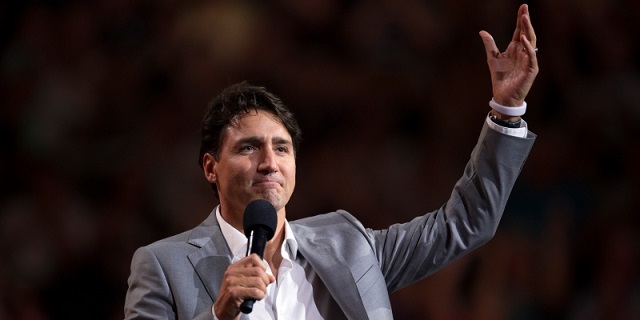
 Fraser Institute2 days ago
Fraser Institute2 days agoCanadians should decide what to do with their money—not politicians and bureaucrats
-

 Addictions2 days ago
Addictions2 days agoBritish Columbia should allow addicts to possess even more drugs, federal report suggests
-

 Censorship Industrial Complex1 day ago
Censorship Industrial Complex1 day agoAustralian politicians attack Elon Musk for refusing to remove video of Orthodox bishop’s stabbing
-

 Alberta1 day ago
Alberta1 day agoAlberta official reveals ‘almost all’ wildfires in province this year have been started by humans

